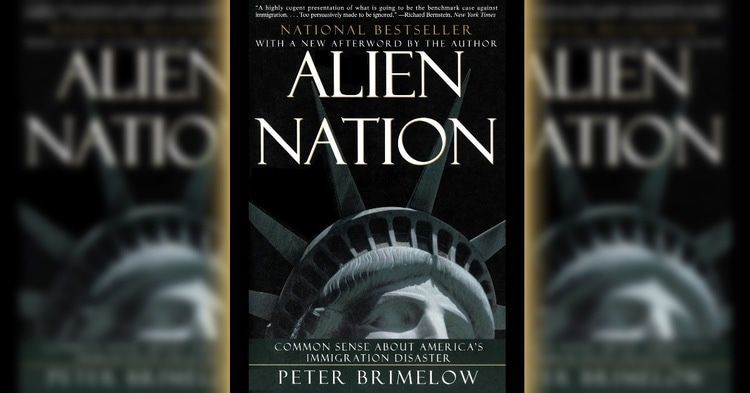


05/01/1995
National Review, May 1, 1995 v47 n8 p80(1) Glenn C. Loury
Terms of Engagement
Alien Nation: Common Sense About America’s Immigration Disaster.
Glenn C. Loury.
© National Review Inc. 1995
ON A RECENT trip to Australia I spent some time with a group of economists and sociologists at the local Bureau of Immigration and Multicultural Research. They were eager to explain to a visiting American how well their country was managing its immigration policy. They stressed two main goals: to encourage newcomers to seek Australian citizenship; and to promote the idea of a multicultural identity, so that these new citizens will not feel it necessary to abandon their cultural heritage as the price of adopting a new nation. What struck me about this policy was its seeming incoherence. In what, precisely, did these analysts imagine Australian national identity to consist? Why would anyone feel loyalty to a country that required so little of him in order to join it? Upon raising these questions, I was assured by my hosts that I should not worry, the policy was working just fine.
Reading Peter Brimelow’s Alien Nation put me in mind of my trip to Australia. Like this American academic among the Australian bureaucrats, perhaps Brimelow, himself an "outsider,'' has the perspective, the detachment, necessary to ask uncomfortable questions about American immigration policy. For, if what I found in Melbourne seemed incoherent, what I learned about American policy from Brimelow’s engagingly written and informative book makes its Australian counterpart look like brilliant strategic planning. Brimelow is surely correct when he says that no rational account can be given of how the United States decides'' who will, and who will not, come to and live in our country. I find him persuasive as well when he urges that we must not continue in this way.
The broad outline of Brimelow’s argument in Alien Nation was already discernible in his NATIONAL REVIEW article of three years ago. The rate of sustained net immigration to the United States — legal and illegal — is large. The composition of this flow is problematic, in that these are people with, on average, fewer skills, and greater differences from the national culture, than a nation would wisely welcome in large numbers. This situation is the result of government policy, principally the Immigration Act of 1965, but also of a willful refusal to control our borders. Finally, if the situation continues, the essential character of the nation will change, for the worse, and within the span of a single lifetime.
This argument is not, in my judgment, proved beyond doubt in Alien Nation, but I find the case strong enough to warrant careful, detailed, and sustained consideration. One reason I am not fully convinced by Brimelow’s argument is that it conflates two distinct concerns: that the bulk of recent immigrants are non- European, and that the skill level of recent immigrants is low relative to that of the incumbent working population. Both of these are true, and yet there is no necessary connection between them. We could easily have a much more discriminatory immigration policy aimed at raising the average level of human and financial capital of new entrants, while maintaining the current, high proportion of non-Europeans. Clearly, it will be easier to effectively assert the desirability of rationing entry on the basis of skills than to win a political argument starting from the premise that America is a white nation whose essential character is undermined by admitting so many non-whites. This is not to say that the latter argument is inherently unethical.
It is a pleasure to read Peter Brimelow at length. He writes straightforwardly, with wit, honesty, and good humor. And he is right, I think, to stress that the formulation of a policy as central to a nation’s well-being as that determining who its people shall be must take cultural factors into account. Yet as I said to the Australians, it seems to me less important that new arrivals start out being compatible with us'' than that they end up so. This is not so much a matter of immigration policy as it is of what we might call assimilation policy.'' If, like the Australians, we refuse to encourage newcomers to join us'' because we have ourselves lost confidence that there is in us'' in the sense of a distinct American people, then we will indeed create mischief. I note, too, as did Tocqueville, that the presence of African slaves at the Founding has meant that from quite early on we have been faced with an assimilation problem'' of some magnitude. I agree with Mr. Brimelow that multiculturalism, ethnic/racial quotas, and bilingualism are, in the long term, enemies of national unity. But so is Eurocentric chauvinism, a hint of which is evident in his account. The antidote to all these bad "isms'' is individualism. We have a long way to go, of course, before this becomes the reigning ideology in America; but we will never get there if, as we conduct the long overdue debate on immigration policy, we do so in the terms chosen by Peter Brimelow.